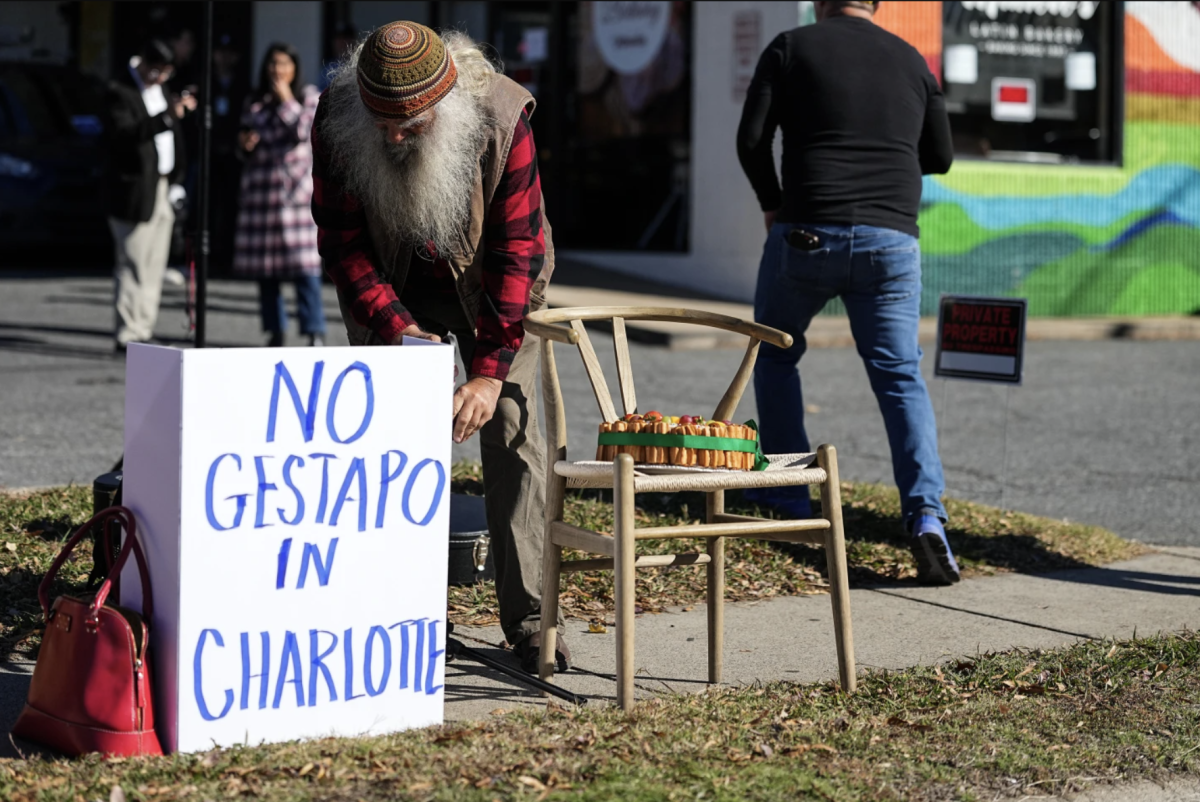The immigration discussion has picked up nationwide with a March 5 deadline approaching for Congress to address the Deferred Action for Childhood Arrivals, or DACA, program. “Immigration is one of the most important issues today on the United States political agenda,” said Guadalupe Correa-Cabrera, George Mason University policy and government professor, during a speech at TCU. “It drove the 2016 campaign and it is, right now, in the center of the discussion in Washington and everywhere else in the United States.” Last week during the 2018 State of the Union, President Donald Trump proposed an immigration reform plan that includes four pillars: creating a path to citizenship for Dreamers, securing the border, eliminating the diversity visa lottery and limiting family-based immigration. “He is trying to negotiate the acceptance of the [DACA] Dreamers and maybe pat them with citizenship, in exchange for an immense amount of resources to build the wall and to continue to enforce the border,” Correa-Cabrera said. Correa-Cabrera, the 2018 Herman Brown Distinguished Scholar, brought the conversation to TCU this week. She said she wanted to educate students on how to separate political discourse and reality — adding that she’s seen mostly discourse coming from Washington. “I do not think that the legislatures will give the support that this requires to make this compromise,” Correa-Cabrera said. “So, at this point, I see pure rhetoric and a populist approach to these issues.” Some TCU students are concerned about what this debate in Washington means for their family and friends at home. “I am from San Diego, and so it is a pretty Hispanic community in Southern California,” said Matthew Chronis, a first-year pre-business major. “I know a lot of people are nervous about it, but at the same time a lot of people don’t really think they will actually get kicked out.” Chronis said he has heard a lot about DACA but isn’t confident that he knows what is true and what isn’t. “I came from a very diverse high school here in North Texas,” said Katherine Durham, a first-year political science major. “I have a few friends that are impacted by this and definitely family back home that are impacted by this and are worried about the consequences of these actions.” Trump has set a March 5 deadline to address DACA, which Obama enacted as an Executive Order in 2012. Congress has a little less than a month to agree on a new compromise before the policy expires. “I understood the overturning of it by President Trump, because it was just an Executive Order by Obama,” Durham said. “I think there is some resolution that we need to come to in order to allow these kids that are just trying to live out their dreams in America to get to have that opportunity here.”
Categories:
TCU visiting scholar continues campus conversation on immigration
Published Feb 10, 2018
The TCU swimming and diving team looks to put a stamp on a solid first season in the Mountain West Conference when the it travels to Oklahoma City today for the conference championships.The MWC has shown more depth and dedication regarding its swimming programs than TCU’s previous conference, Conference USA, forcing the Horned Frogs to be in top form at every meet. The new conference also provides a chance for the men’s team to compete in a championship meet, an opportunity it was denied in C-USA as the end-of-season meet was considered an invitational, head coach Richard Sybesma said.
More to Discover



